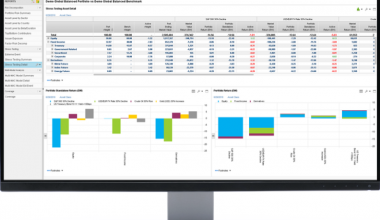There we go again with the credit score thing! Well, your credit score has to do with everything concerning loans and mortgages, and buying a car is not left out. The thing is, there is no minimum credit score needed to buy a car or obtain an auto loan. But in the case of no money for a down payment, and no cosigner, let’s see if there’s a specific credit score needed to buy the car.
Understanding Credit Ratings for Auto Loans
Lenders use your credit score to assess your financial stability and ability to repay debt. Credit scores are classified into tiers.
Your FICO Auto Score, which is used by most lenders to analyze car loan applications, may be lower or higher than your usual credit score depending on previous auto loans—how much you borrowed and how well you made the payments.
Your actual FICO Auto Score may even differ from one lender to the next. Each lender examines your credit report information and weights it based on what they believe is most significant.
For example, one auto lender may think it’s terrific that you paid off your last car loan a year ago and conclude that you have a high auto credit score in their view. Another lender may believe that adding an auto loan to your budget is dangerous because you do not currently have one, and they may lower your auto credit score.
What is the Minimum Credit Score Needed To Buy a Car Without a Cosigner?
There’s no specific credit score needed to buy a car without a cosigner. In fact, if you have enough cash to pay in full, you won’t need a loan or to have your credit evaluated.
You’ll have more possibilities if your credit score is at least 670, which is considered good by lenders. There are, nevertheless, financing solutions available for applicants with credit ratings as low as 300.
What Do You Need To Obtain A Car Loan Without A Cosigner?
While the qualifications for a car loan without a cosigner differ per lender, you’ll have a better chance of approval if you match the following criteria:
- Steady source of income
- A substantial down payment has been saved.
- Good credit
- Car insurance with full coverage
- Citizenship or permanent residency in the United States
- You must be at least 18 years old.
Ways to Improve Your Chances of Approval
If you’re looking for a decent deal on a car loan without a cosigner, keep these suggestions in mind.
#1. Improve Your Credit Score
Taking the time to improve your credit score before applying for a car loan will help you get a cheaper interest rate or more favorable terms. You may improve your credit score by using credit cards wisely and making timely payments on other debts.
#2. Save Money for a Larger Down Payment
The more your down payment, the less you will have to borrow. This means you won’t have to finance as much of your vehicle, lowering your risk to a potential lender.
#3. Increase Your Earnings
Taking up a second job or asking for additional shifts from your existing employer will help you save for that large down payment. It also shows lenders that you’re serious about repaying your loan, indicating that you’re a reliable borrower even if your credit isn’t perfect.
#4. Pay Off Your Existing Debts
A lender would likely view your other financial responsibilities as a danger if your debt-to-income (DTI) ratio is too high. As a result, before applying, you may wish to prioritize debt repayment and increase your credit usage percentage.
#5. Compare Several Lenders
Understanding your options is crucial for obtaining a competitive rate, even if you do not have a cosigner. Most credit bureaus consider several vehicle loan applications to be one hard pull on your report if you apply within a particular time frame. Take advantage of this by comparing as many lenders as possible before making a final decision.
#6. Look for a Less-Priced Vehicle
If you don’t have a cosigner and can’t afford a large down payment, you may need to opt for a less expensive vehicle. It implies you won’t need to borrow as much, which may make getting approved with bad or no credit easier.
Is a Cosigner Needed if I Have A Good Credit Score and Want to Buy A Car?
Borrowers with strong credit rarely require a cosigner when applying for a vehicle loan. In fact, if you have solid credit, a consistent source of income, and few obligations, you can expect a relatively low APR – often as low as 2% to 5%.
Lenders want cosigners for borrowers who may be riskier. So, if you’ve been developing your credit and don’t have any major red flags, such as a low income or a lot of debt, you won’t need a cosigner.
What Credit Score Is Needed To Buy A Car With No Money Down?
Buying a car with no money down may seem too good to be true, but many dealers, banks, and credit unions will let you do just that. All that is needed to buy the car is a good credit score and proof that you make enough money to repay the loan.
In general, a FICO credit score of at least 700 is needed to qualify for a car loan if you have no money for a down payment. Furthermore, you must be paying a reasonable price for the automobile in question—at or below the Kelley Blue Book value or the equivalent. If you are paying too much, you may be able to get no-money-down financing from the dealership that is charging you that price, but you will not be able to get it from any other financial institution.
If you have a trade-in, it’s even easier to secure a no-money-down loan from the dealer since they can easily manipulate the amount they provide you for the trade-in to make it a profitable arrangement for them. Financial organizations may have harsher requirements in times of scarce credit.
Regardless of your credit score, you will be required to provide the normal auto loan documentation to buy a car. This means you’ll need your most recent two pay stubs, which must show your total earnings year to date. Bring your tax returns for the last two years if you are self-employed. It’s a good idea to check your credit record before applying for a loan. If you have any problems that are harming your score, now is the time to fix them. Don’t wait for the lender to run your report to check if there are any problems.
Note:
Because new automobiles depreciate quickly, it’s easy to find yourself “upside down” in a no-money-down arrangement (meaning you owe more than the car is worth). If you run into financial difficulties and have to sell it, the proceeds will not be enough to pay off the debt. You’ll have to make up the difference yourself. Some lenders will allow you to take out an unsecured loan for the difference, but this normally requires an exceptional credit score and is entirely at the discretion of the lender.
How to Get a Car Loan with Bad Credit
If your credit score is 660 or lower, you will almost certainly encounter a hefty vehicle loan APR. But don’t give up! There are ways to deal with this. Making a budget first can help you get accepted for a car loan and will set you up for success.
#1. Plan Ahead for a Higher Interest Rate
Experts advise you to restrict your entire transportation costs to less than 10% of your budget. You will pay more in interest if you have a low credit score, so you should strive for a less-priced automobile and/or a large down payment.
According to Experian, successful subprime auto loan applicants financed lesser average amounts — approximately $29,000 to $35,000 — compared to individuals with stronger credit scores who had larger loans — approximately $34,000 to $39,000.
For example, if you can afford a $450 payment over a 72-month period, here’s how much you should finance based on your credit score’s average vehicle loan APR. It should be noted that the credit bands differ depending on the data source.
#2. Obtain a Cosigner
A cosigner for a car loan might be extremely beneficial. Even if the other person does not have the finest credit, lenders often see two persons accepting responsibility for the loan as a favorable sign that the payments will be received each month. A cosigner can increase your chances of approval and cut your auto loan APR.
The disadvantage of this is that both people on an auto loan are fully accountable for repayment. So, if one party fails to make the payments, the other must step in. Otherwise, both applicants’ credit ratings will suffer.
#3. Look For Preapproval Elsewhere
Each lender may evaluate your credit history in slightly different ways and offer you a different loan APR. That is why it is essential to shop around for any form of loan you require. Do not rely on a dealership to complete this task for you. Car dealers, as the middleman, can hike your APR by up to two percentage points. Instead, look into the finest vehicle loans for negative credit and, in particular, apply at your local credit union.
Applying to various lenders will not harm your credit; the major credit bureaus allow consumers a two-week window to rate-shop. If you apply for all loans within 14 days, your credit is not hurt any more than if you only apply for one loan.
How to Improve Your Automobile Credit
Check your credit score before you start buying so you know where you stand. The greatest strategy to boost your credit in preparation for an auto loan is to make on-time payments on your current car loan every month. If you don’t currently have a car loan, here are some alternative ways to increase your credit score in addition to or instead of that:
- All bills must be paid on time.
- Pay down your credit card debt.
- Maintain your credit accounts.
- Apply for no other credit for six months before applying for a car loan.
Your credit score can be generated by one of two credit score models:
FICO Rating. Fair Isaac Corporation’s FICO Score is by far the most widely utilized credit score technique. It primarily considers your payment history as well as the amount of debt you have in comparison to your credit limitations. A FICO Score is created after six months of credit history.
VantageScore. The VantageScore was created by the three major credit agencies (Equifax, Experian, and TransUnion) in order to more precisely reflect customer behavior and risk. Your VantageScore is determined mostly by your total credit utilization and credit mix. This credit score can be obtained in as little as a month of credit history.
Can you get a car loan with a credit score of 650?
If your credit score is below 650, getting an auto loan may still be possible, but you can expect to pay higher interest rates. If you take the time to raise your credit score before applying for a car loan, you’ll be in a stronger position to secure favorable repayment terms.
Does it hurt your credit score to buy a car?
Credit scores can take a minor hit when taking on a large new debt like an auto loan for the first time. Making loan payments on time will help your credit score rise again. Your credit score may rise after purchasing a car if you do the following: Pay the installments on time.
What is considered a high car payment?
A car payment that accounts for more than 30 percent of monthly income is considered excessive by most experts. Don’t forget that there are other costs associated with owning a car beside the monthly payment. Think about how much you’ll spend on gas and repairs. Do not let your car payment eat up more than 15–20 percent of your monthly take-home pay.
Can I get a car with a 500 credit score?
The interest rate attached to a variable-rate loan shift with the market on a regular basis. Be aware that the frequency with which this resets varies by lender. Your financial institution may also provide you with a discounted rate for an introductory period. With a credit score of 500 or lower, you may still qualify for a bad credit auto loan. Your approval odds can be boosted by a sizable down payment, a favorable interest rate, or a reliable cosigner when applying for a car loan.
Should I tell dealer my credit score?
Don’t give the car dealership permission to check your credit. The dealership’s willingness to negotiate on a price for the car you want to buy may change once they see your credit report. Tell the salesperson that you’re just looking to save money on the car.
What do lenders look for when buying a car?
Lenders examine your credit history to determine whether you have missed payments or unpaid bills, as well as your total debt obligations to determine whether your debt-to-income ratio (DTI) is low enough to support an auto loan.
How fast will a car loan raise my credit score?
A high volume of new credit can lower your credit score. While many factors are considered when calculating your FICO credit score, you may begin to see an increase in your score within 60 to 120 days. Keep in mind, however, that everyone’s credit situation is unique, so your results may differ.
In Conclusion
You can buy a car without needing a cosigner, regardless of your credit score. Banks and credit unions frequently offer inexpensive rates to customers with strong to exceptional credit, whereas those with bad or no credit should consider online lenders and dealerships first.
Frequently Asked Questions
Can I get a car with a 600 credit score?
Yes, you can get a car loan with a 600 credit score
What credit score do you need for a car loan?
Generally, you’ll need a credit score of 661 or higher to qualify for a car loan. However, you may still qualify for a car loan with lesser credit.
What is a 570 credit score considered?
A 570 score is considered a below-average credit score.






